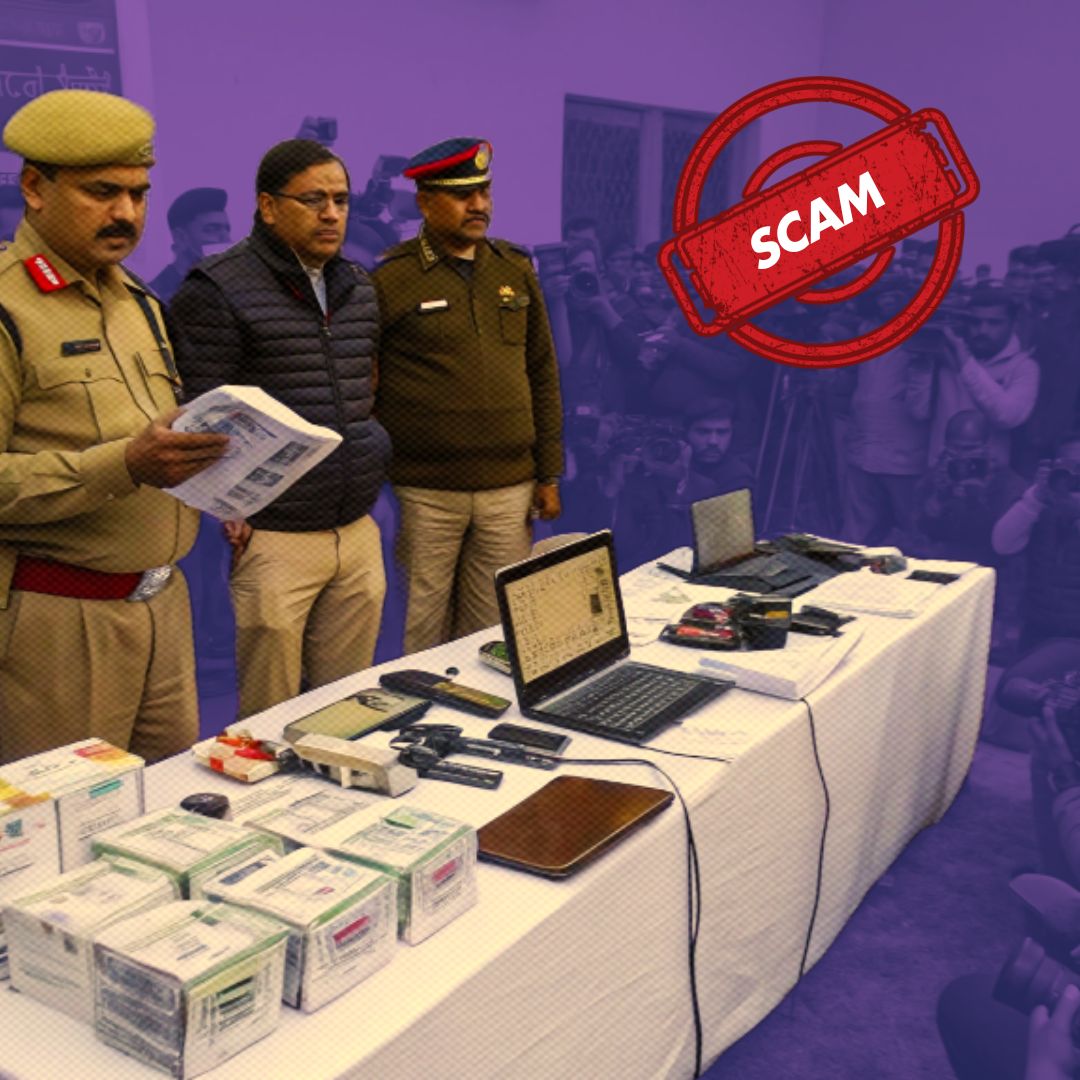On July 23, 2025, Lucknow Police executed the city’s largest cyber fraud bust at a flat in Smriti Apartment, Jankipuram, seizing ₹1.16 crore in cash, 103 mobile devices, and arresting 16 individuals running a pan-India online betting scam through a fake platform called ‘Lotus Gaming.’
The accused, predominantly unemployed tech-savvy youth from Chhattisgarh and Gujarat, used manipulated app algorithms to deceive thousands of victims nationwide, funneling money through fraudulent and rented bank accounts. Police investigations are ongoing to uncover a wider network and trace additional assets as complaints surge from multiple states.
Massive Haul and Police Statements
The police raid recovered 79 ATM cards, 22 bank passbooks, 13 cheque books, two note-counting machines, and 14 Aadhaar cards, some of which were forged. Lucknow Police Commissioner Amrendra Kumar Sengar explained that the gang operated with distinct roles covering app management, recruitment, and money laundering, converting digital fraud into large cash sums.
Deputy Commissioner of Police (DCP) East Shashank Singh highlighted the exploitation of economically vulnerable people who rented bank accounts for small sums, complicating detection due to multi-layered financial transactions. The accused included identified members such as Pramod Sahu, Sajid Ansari, and Suhail Ashraf, among others. The police have announced a cash reward of ₹1 lakh for the investigation team that cracked the case.
Expanding Online Betting and Cybercrime Networks
This bust is part of a growing cybercrime trend in Lucknow and beyond. A day before, police raided another flat in Friends Colony, arresting 15 youths connected to similar scams run through platforms like ‘Anna Reddy’, ‘Fair Play’, and ‘99 Exchange.’ These groups lured victims nationwide via Telegram and WhatsApp, promising quick earnings from online betting and jobs, and used mule accounts to move money while destroying digital evidence. Investigations revealed that some masterminds are believed to be operating remotely from international locations including Dubai, Sri Lanka, and Singapore, frequently shifting their base to evade law enforcement. Authorities confirmed over 44 complaints linked to these rackets with transactions amounting to crores of rupees.
Expert Advice and Consumer Safety Measures
Cybersecurity experts urge consumers to exercise caution with online betting and gaming apps by verifying platform authenticity, using strong, unique passwords, and enabling two-factor authentication. Experts recommend avoiding suspicious links, never sharing sensitive personal or banking information, and looking for security indicators such as HTTPS and padlock symbols before transacting online. Updating software regularly and reporting suspicious activity to cybercrime cells or helplines like The Cyber Helpline are important preventive steps.
Experts also stress the importance of real-time KYC verification and identity checks by app providers to curb fraud. Consumer education campaigns are critical to raise awareness, especially among vulnerable and young populations, to prevent exploitation and encourage safe digital practices.
The Logical Indian’s Perspective
This massive cyber fraud bust underscores the complex challenges at the intersection of technology, economic hardship, and law enforcement constraints. As crime becomes increasingly digital and sophisticated, it is imperative that society responds with robust policing coupled with widespread digital literacy, empathy, and community vigilance. Protecting vulnerable individuals from exploitation and preventing the recruitment of unemployed youth into such scams require constructive dialogue and inclusive social strategies.
The Logical Indian advocates for kindness, education, and shared responsibility in building a safer digital environment.












